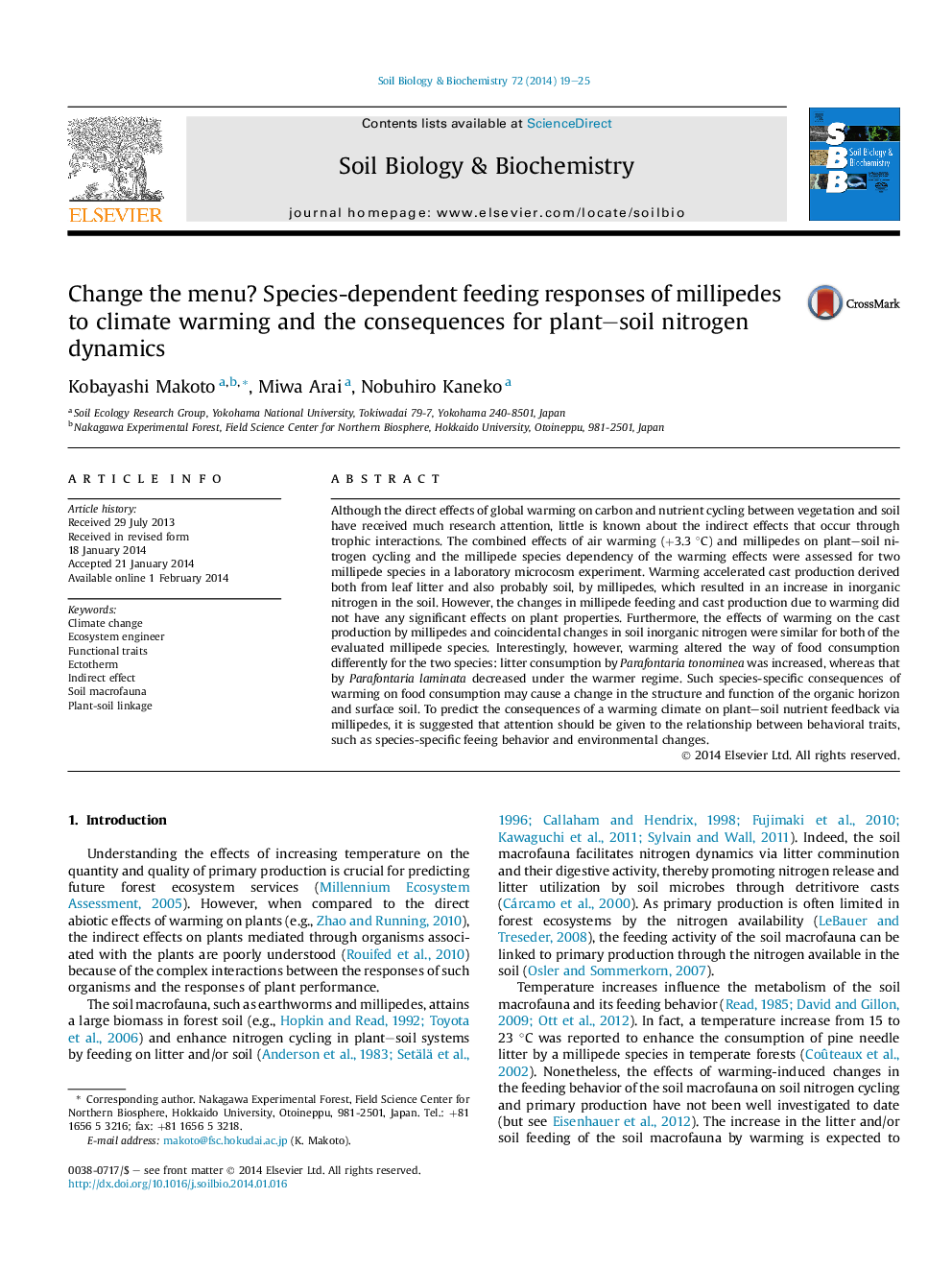| Article ID | Journal | Published Year | Pages | File Type |
|---|---|---|---|---|
| 8364798 | Soil Biology and Biochemistry | 2014 | 7 Pages |
Abstract
Although the direct effects of global warming on carbon and nutrient cycling between vegetation and soil have received much research attention, little is known about the indirect effects that occur through trophic interactions. The combined effects of air warming (+3.3 °C) and millipedes on plant-soil nitrogen cycling and the millipede species dependency of the warming effects were assessed for two millipede species in a laboratory microcosm experiment. Warming accelerated cast production derived both from leaf litter and also probably soil, by millipedes, which resulted in an increase in inorganic nitrogen in the soil. However, the changes in millipede feeding and cast production due to warming did not have any significant effects on plant properties. Furthermore, the effects of warming on the cast production by millipedes and coincidental changes in soil inorganic nitrogen were similar for both of the evaluated millipede species. Interestingly, however, warming altered the way of food consumption differently for the two species: litter consumption by Parafontaria tonominea was increased, whereas that by Parafontaria laminata decreased under the warmer regime. Such species-specific consequences of warming on food consumption may cause a change in the structure and function of the organic horizon and surface soil. To predict the consequences of a warming climate on plant-soil nutrient feedback via millipedes, it is suggested that attention should be given to the relationship between behavioral traits, such as species-specific feeing behavior and environmental changes.
Related Topics
Life Sciences
Agricultural and Biological Sciences
Soil Science
Authors
Kobayashi Makoto, Miwa Arai, Nobuhiro Kaneko,
